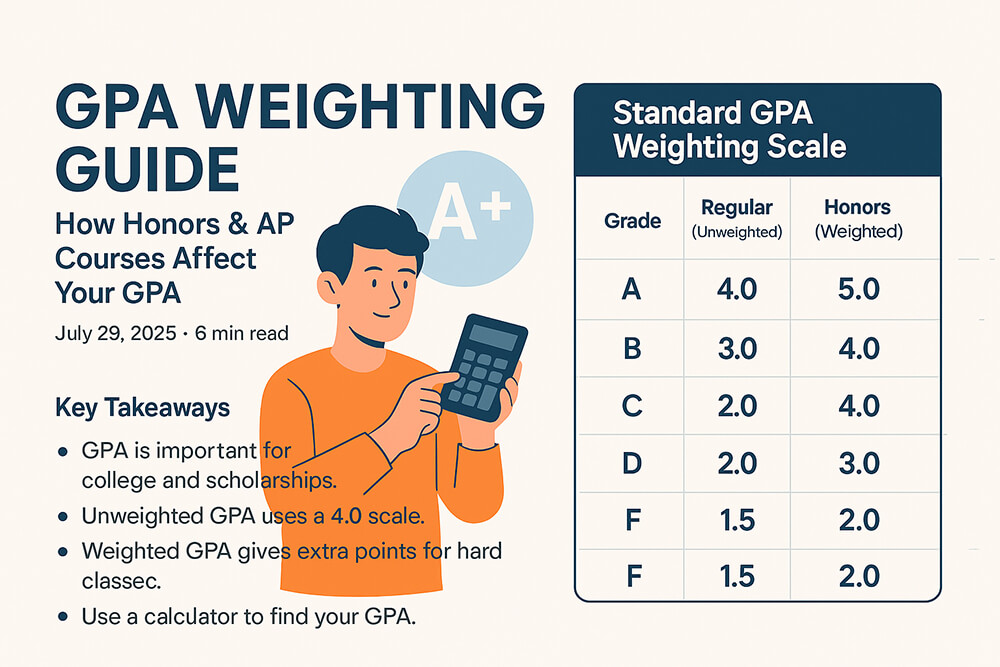| Key Takeaway | Description |
|---|---|
| Summa Cum Laude | "With Highest Honors." Typically requires a GPA of 3.9 or higher, placing students in the top 1-5% of their class. |
| Magna Cum Laude | "With Great Honors." Generally requires a GPA between 3.7 and 3.89. |
| Cum Laude | "With Honors." The most common distinction, usually requiring a GPA of 3.5 to 3.69. |
| Two Main Systems | Colleges use either a Fixed GPA threshold (e.g., 3.9 for summa) or a Percentage-Based system (e.g., top 5% of the class). |
| Credit Requirements | Most schools require a minimum number of credits (often 50-60) taken at the institution to be eligible for honors. |
| Career Impact | Latin honors provide a strong advantage for your first job and graduate school applications but become less important as you gain professional experience. |
Understanding Graduation Honors and Your GPA
Graduation honors are special awards for students who do very well in school. These awards have Latin names: summa cum laude, magna cum laude, and cum laude. They show that you have a high Grade Point Average (GPA). A high GPA means you earned very good grades in your classes. These honors appear on your diploma and official school records. They tell employers and other schools that you worked hard and achieved great results. The specific GPA needed for each honor can be different at each university, so it is important to know your school's rules. The history of GPA shows how schools have measured student success over time.
Different schools use various types of GPA scales to measure academic performance. Some use a 4.0 scale, while others might use a 5.0 scale for advanced classes. Understanding your school's system is the first step toward earning honors.
What Are the Standard Latin Honors?
Latin honors are divided into three main levels. Each level shows a different degree of academic success. The exact GPA needed varies, but there are general standards that most schools follow. Knowing these standards helps you set clear goals for your grades.
- Summa Cum Laude means "with highest honor." This is the top award. It is for students with the best grades, usually in the top 1-5% of the graduating class. The average GPA requirement is often 3.9 or higher.
- Magna Cum Laude means "with great honor." This is the second-highest award. It is for students in the top 10-15% of their class. The typical GPA range for this honor is 3.7 to 3.89.
- Cum Laude means "with honor." This is the first level of honors. It recognizes students in the top 20-30% of their class. The GPA for cum laude is usually between 3.5 and 3.69.
Many schools have clear charts that show the GPA needed for the Dean's List and other honors. You can use a Dean's list eligibility checker to see where you stand.
How Your GPA is Calculated for Honors
Your GPA is a key number for graduation honors. It is the average of the grades you get in your classes. Each grade has a point value. An A is usually 4 points, a B is 3 points, and so on. To get your GPA, you add up all the points from your classes. Then you divide that total by the number of classes you took. This simple average is your GPA.
Schools use a specific GPA formula guide to make sure every student's GPA is calculated the same way. It is important to know how to calculate your GPA correctly. Understanding the difference between quality points vs. GPA helps you track your progress. Avoiding common GPA calculation errors ensures you have an accurate picture of your academic standing.
Weighted vs. Unweighted GPA in Honors Calculations
Schools sometimes use two types of GPA: weighted and unweighted. An unweighted GPA is on a 4.0 scale where an A is always a 4.0, no matter the class difficulty. A weighted GPA gives extra points for harder classes, like Advanced Placement (AP) or honors courses. In these systems, an A in an AP class might be worth 5.0 points instead of 4.0.
Whether a school uses your weighted or unweighted GPA for honors is a key detail. Some colleges recalculate your GPA using their own scale to compare all students fairly. It is useful to understand the difference between weighted vs. unweighted GPA. There are many weighted GPA myths that have been debunked, so stick to your school's official rules. A weighted vs. unweighted GPA calculator can help you see both scores.
How Special Course Types Impact Your Honors GPA
Not all courses affect your GPA in the same way. Some classes, like those graded Pass/Fail, do not count toward your honors GPA at many schools. Taking too many Pass/Fail courses could make it harder to qualify for honors. If you repeat a course, some schools will average both grades, while others will only take the higher grade. It is important to know your school's policy on these special cases.
Knowing how pass/fail grades impact your GPA is vital for strategic planning. A repeat course GPA recalculator can show you how retaking a class might change your standing. You can also use a planner for incomplete grades to manage any unfinished coursework.
Strategic GPA Planning for Graduation Honors
To earn graduation honors, you need a plan. Start thinking about your GPA from your first year. Good grades early on make it much easier to reach the high GPA needed for honors. A small slip in your freshman year can be hard to recover from later. Use a GPA calculator to track your progress each semester. This helps you know what grades you need in future classes to stay on track for your goal.
A good plan includes using study tips for better grades. You can use a freshman year GPA predictor to set a strong foundation. Tools like a semester GPA calculator and a cumulative GPA calculator are essential for monitoring your progress toward honors.
Rules for Transfer and International Students
The rules for honors can be different for transfer and international students. Most universities require you to complete a certain number of credits at their institution to be eligible for honors. This is often around 60 credits. Transfer credits from your old school help you graduate, but they usually do not count toward your honors GPA at your new school. Your honors eligibility will likely depend only on the grades you earn at your new university.
International students may need to convert their grades to the American 4.0 scale. An international GPA converter guide can help with this process. Whether you are a transfer student or studied abroad, use a transfer credits GPA integrator or a study abroad grades GPA integrator to understand your standing. For those from the UK, a guide on converting the UK class system to a 4.0 GPA is very helpful.
Understanding Different GPA Scales for Honors
While the 4.0 scale is common, it is not the only one. Some high schools use a 5.0 GPA scale guide for weighted grades in honors or AP classes. Other schools might use a percentage system, where your average grade out of 100 determines your standing. To qualify for honors, you must understand how your school's scale works and what the cutoffs are.
A GPA scale comparison tool can show you how different systems measure up. It is good to know the pros and cons of different GPA scales. You may also need a tool for percentage to 4.0 GPA conversion if your school uses percentages.
What Happens if Your GPA is Too Low for Honors?
Sometimes, your GPA might fall below the requirement for honors. If this happens, it is important to know your school's rules on academic standing. A low GPA could put you on academic probation, which is a warning period to improve your grades. While you may not earn Latin honors, you can still graduate with a strong record in your major.
Focus on meeting the requirements for satisfactory academic progress. If you are concerned, review the academic probation rules by state and speak with an academic advisor. They can help you create a plan to raise your GPA.
Frequently Asked Questions (FAQ)
Q1: What is the main difference between magna cum laude and summa cum laude? The main difference is the level of academic achievement. Summa cum laude is the highest honor, typically requiring a GPA of 3.9 or above. Magna cum laude is the second-highest honor, usually awarded for a GPA between 3.7 and 3.89.
Q2: Do transfer credits count towards graduation honors? Usually, no. Most universities require students to complete a minimum number of credits at their institution (often 50-60) to be eligible for honors. The GPA from your previous school is typically not included in the honors calculation.
Q3: How should I list Latin honors on my resume? You should list Latin honors in the education section of your resume. It is best to write them in lowercase and italics, such as "Bachelor of Arts, summa cum laude." This clearly and professionally shows your achievement.
Q4: Can I get honors if my school uses a percentage-based system? Yes. Some schools award honors to the top percentage of the graduating class instead of using fixed GPA cutoffs. For example, summa cum laude might go to the top 5%, magna cum laude to the next 10%, and cum laude to the next 15%.
Q5: Is it possible to get honors in my major but not from the university? Yes. Many universities offer departmental honors. This award is based on your GPA within your major courses. You might earn honors in your major even if your overall cumulative GPA does not meet the university's threshold for Latin honors.
















